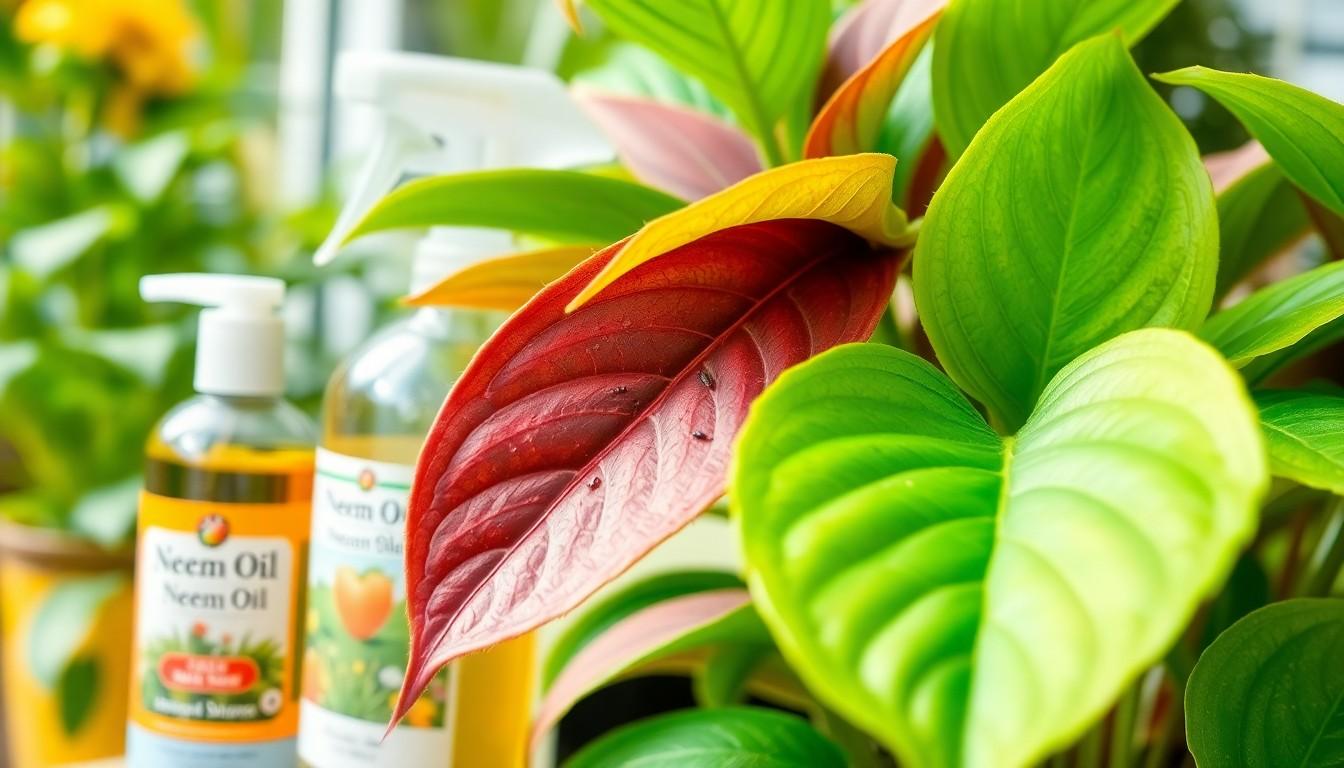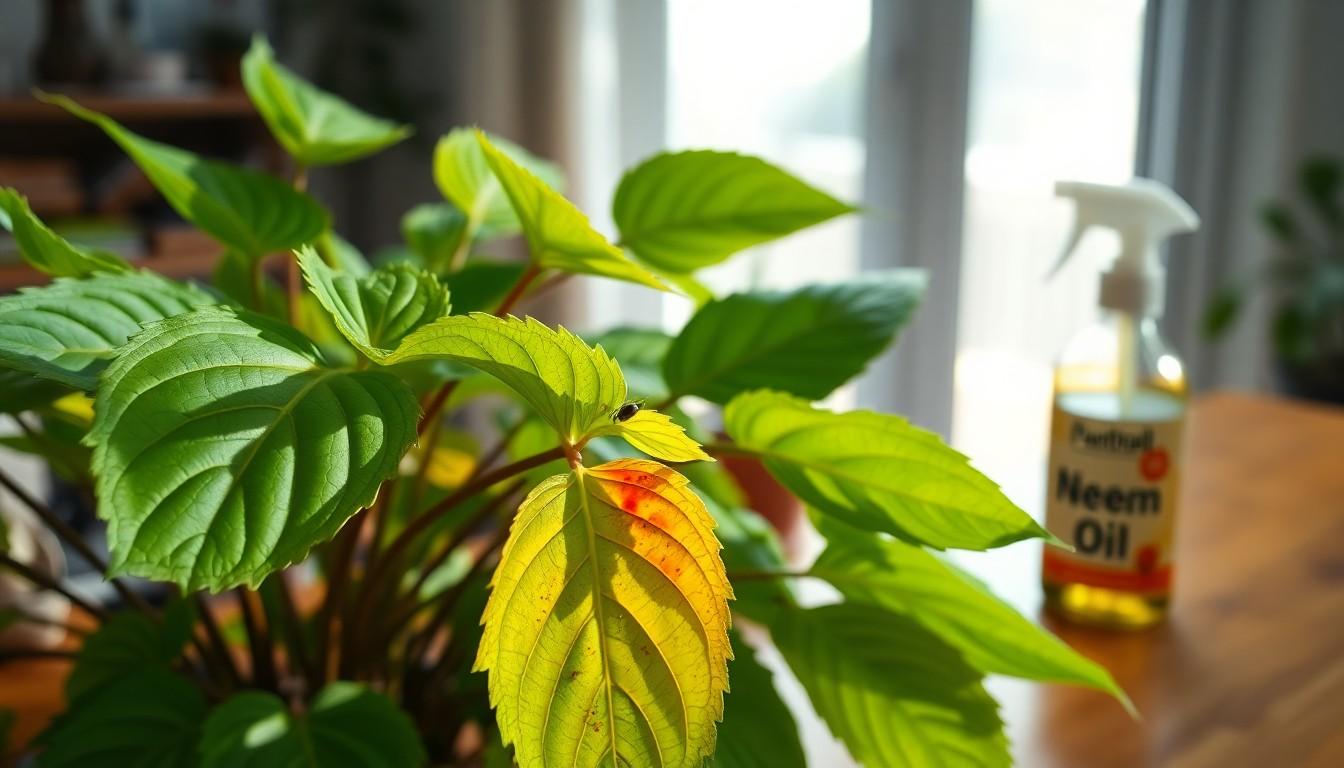Houseplants bring life and vibrancy into any space, but what happens when tiny green intruders crash the party? Enter aphids—those pesky little critters that seem to have an unending appetite for your beloved foliage. They’re like the uninvited guests who munch on the snacks and refuse to leave. But don’t worry, there’s hope!
How to Kill Aphids on Houseplants
Aphids affect houseplants by sucking sap from foliage, weakening plants over time. These small pests reproduce quickly, making infestations a common issue for plant owners.
Common Types of Aphids
Green peach aphids, black bean aphids, and cotton aphids are prevalent among houseplants. Green peach aphids often target soft, young growth, while black bean aphids typically infest legumes. Cotton aphids favor cotton plants, but they also invade other species, causing noticeable damage. Each type varies in color, size, and host preference, which helps identify them easily.
Signs of Aphid Infestation
Symptoms of aphid infestation include yellowing leaves, stunted growth, and sticky residue on surfaces. Leaves may curl or become distorted due to sap loss, indicating stress. Additionally, the presence of ants often suggests aphids, as these insects tend to protect them for honeydew. Observing these signs early helps manage infestations effectively.
Natural Methods to Kill Aphids on Houseplants
Utilizing natural methods can effectively eliminate aphids from houseplants. These methods offer environmentally friendly solutions that maintain plant health while targeting pests.
Neem Oil Applications
Applying neem oil acts as a natural pesticide against aphids. This oil disrupts the insects’ hormonal systems, inhibiting their growth and reproduction. To use neem oil, mix it with water according to package instructions and spray it directly on infested areas. Expect to repeat applications every 7 to 14 days for optimal results. Neem oil is safe for most houseplants but should be tested on a small area first to ensure compatibility.
Insecticidal Soaps
Insecticidal soaps provide another effective method for aphid control. These soaps work by suffocating pests upon contact. They penetrate the soft exoskeleton of aphids, causing dehydration. For application, mix the soap with water as instructed and spray it on affected leaves and stems. Repeat this process every few days until aphids are gone completely. Always select insecticidal soaps formulated specifically for houseplants to avoid harming beneficial insects.
Chemical Solutions for Aphid Control
Chemical solutions provide an effective means for controlling aphid infestations on houseplants. Various pesticides exist that can effectively target these pests.
Available Pesticides
Insecticides come in different forms, including systemic and contact options. Systemic pesticides, such as imidacloprid, enter the plant and can provide long-lasting protection. Contact insecticides, like pyrethrin, kill aphids on contact and often offer quicker results. Always select products specifically labeled for houseplant use to avoid phytotoxicity. Other options include horticultural oils that suffocate aphids and are often less harmful to beneficial insects when used properly.
Application Tips and Safety Precautions
Reading the product label before use is essential. Users should apply pesticides during cooler times of the day to minimize plant stress. Holding the spray at a distance of 6 to 12 inches improves coverage while reducing chemical use. Using gloves and a mask during application protects against skin irritation and inhalation. It’s also important to avoid treating plants in direct sunlight to prevent leaf burn. Proper ventilation during application ensures safety indoors, making the process both effective and safe.
Preventing Future Aphid Infestations
Aphid infestations cause ongoing challenges for houseplant enthusiasts. Implementing preventive measures significantly reduces risks.
Maintaining Plant Health
Healthy plants resist aphid attacks more effectively. Providing adequate light, water, and nutrients helps maintain strong foliage. Regularly checking for early signs of stress, such as wilting or discoloration, allows for quick intervention. It’s also beneficial to rotate plants regularly, exposing them to varying light conditions. Incorporating suitable fertilizers promotes vigorous growth, making plants less appealing to pests. Ensuring proper drainage prevents root rot and overall plant weakness, further enhancing their defenses against aphids.
Environmental Considerations
Creating a conducive environment can deter aphids from invading. Maintaining optimal humidity levels helps sustain plant health, while reducing overcrowding minimizes hiding spots for pests. Introducing beneficial insects, like ladybugs and lacewings, contributes to natural pest control. Additionally, selecting disease-resistant plant varieties lowers vulnerability to infestations. Regularly cleaning leaves removes dust and debris, making it harder for aphids to settle. Adjusting the placement of plants to minimize exposure to infested plants nearby decreases the likelihood of attracting these pests.
Managing aphids on houseplants doesn’t have to be a daunting task. By understanding their behavior and identifying signs of infestation early, plant owners can take effective action. Whether opting for natural solutions like neem oil and insecticidal soaps or considering chemical treatments, there are numerous ways to combat these pests.
Incorporating preventive measures ensures that houseplants remain healthy and resilient against future infestations. Regular monitoring and maintaining optimal growing conditions are essential for keeping aphids at bay. With the right approach, anyone can enjoy thriving houseplants free from the nuisance of aphids.





